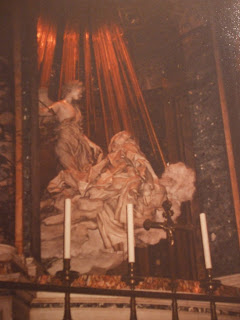Memorial Day Photos, Day #2: Rainer Maria Rilke

I know Memorial Day is a one time thing, but in my e-world a day can last for multiple human days. We'll see how long this holiday lasts, but more than likely it'll end by your Friday, if not before. Day #2 belongs to Rainer Maria Rilke. I visited his gravesite--in Raron, Switzerland--once in autumn (early 90's) and once in winter (I'm guessing 5 to 7 years ago). Autumn Shots: Grave Rilke's Self-Penned Epitaph: Rose, oh reiner Widerspruch, Lust Niemandes Schlaf zu sein unter soviel Lidern. Rose, oh pure contradiction, joy of being No-one's sleep, under so many lids (translation by Stephen Mitchell) Old Church in Raron (Rilke's stone faces the valley) Rilke's Valley View Winter Shots: Grave Muzot (down...





